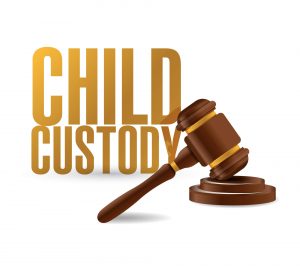




May 2, 2018 by James Wright
“Every parent has the right to custody of his or her child, subject to any order of the court granting rights or privileges in favor of another person. The word “custody” does not include a power given pursuant to NRS 125A.250.” -Nevada Statute.
May 2, 2018 by James Wright
The Tender Years Doctrine in Nevada can be used to protect a child from the harsh realities of divorce. When parents are going through a divorce, they often have disagreements about who will get custody of their children.
May 22, 2018 by Letizia Biafore
In Nevada, the court will grant sole custody of a child to one parent if the other parent has been convicted of certain crimes or is deemed unfit. Laws in this area are changing so make sure you consult an attorney before making any decisions.
May 2, 2018 by James Wright
Child Custody Laws in Nevada are both useful and necessary. Child custody cases in Nevada have been rising steadily, not just for women and children but for men as well.
May 22, 2018 by Letizia Biafore
Custody Attorneys in Las Vegas
There are a number of things to consider when choosing child custody attorneys in Las Vegas.
LATEST BLOG POSTS
Insider Secrets – How To Negotiate Child Custody Agreements In Nevada
Comprehensive Checklist – How To Document Evidence For Child Custody Cases In Nevada
Proven Strategies – How To Win Child Custody Battles In Nevada
Key Factors – How Nevada Courts Determine Child Custody
The Definition of Custody in Nevada
Tender Years Doctrine in Nevada
Sole Child Custody in Nevada
Can You File For Custody While Still Married?
The Difference Between Shared and Joint Custody
- 1
- 2
Latest Blog PostsInsider Secrets – How To Negotiate Child Custody Agreements In NevadaApril 30, 2024UncategorizedMost parents going through a divorce or separation in Nevada may find negotiating child custody agreements to be a daunting and emotional process. This blog post aims to provide you with insider secrets and expert tips on how to navigate the complexities of child custody negotiations in Nevada. By understanding the laws, preparing effectively, and focusing on the best interests of the child, you can approach these negotiations with confidence and achieve a fair and favorable outcome.
Preparing for Negotiation
Educating Yourself on Key Factors Influencing Custody Decisions
For a successful negotiation of a child custody agreement in Nevada, it is vital to educate yourself on key factors that influence custody decisions. Understanding the state’s laws, the court’s priorities, and factors such as the child’s best interests, parental fitness, and the child’s relationship with each parent can help you make informed decisions.
Familiarize yourself with Nevada’s child custody laws.
Consider the child’s needs and best interests during negotiations.
Be aware of how factors such as parental fitness and the child’s relationship with each parent can impact custody decisions.
Any negotiation strategy should be based on a solid understanding of these key factors, giving you an advantage during the process.
Tips for Documenting Your Parenting Contributions
Some tips for documenting your parenting contributions include keeping a detailed parenting journal, maintaining a record of your involvement in your child’s education, healthcare, and extracurricular activities, and collecting character references that speak to your parenting abilities. Providing concrete evidence of your active role in your child’s life can strengthen your case during custody negotiations.
Document your daily interactions and activities with your child.
Keep a record of your involvement in your child’s school and extracurricular activities.
Collect character references from friends, family, teachers, and healthcare providers.
Assume that presenting a well-documented case of your parenting contributions will greatly benefit your position during negotiations.
Preparing for negotiation involves arming yourself with knowledge and evidence to support your case. By educating yourself on key factors influencing custody decisions and documenting your parenting contributions effectively, you can enter negotiations confidently and advocate for the best interests of your child.
Strategies for Successful Negotiation
How to Communicate Effectively During Custody Discussions
Communicate openly and respectfully with your co-parent during custody discussions. Listen actively to their perspective and ensure you express your own thoughts and concerns clearly. Avoid getting defensive or using accusatory language, and focus on finding common ground for the benefit of your child.
Key Tips for Reaching a Mutually-Agreeable Plan
Effectively negotiating a child custody agreement involves prioritizing your child’s well-being above all else. Consider the needs and schedules of both parents to create a balanced plan that works for everyone involved. Be willing to compromise and remain flexible to accommodate changes in circumstances as your child grows. Recall, the goal is to create a stable and nurturing environment for your child.
Focus on the needs of your child above all else.
Be open to compromise and flexibility.
Consider the long-term implications of your agreement.
This approach will not only help you in navigating the negotiation process smoothly but also contribute to a more positive co-parenting relationship in the long run.
Legal Considerations and Support
When to Involve a Child Custody Lawyer
Your child custody battle may require the expertise of a seasoned child custody lawyer in Nevada, particularly if you anticipate a contentious dispute or have complex legal issues to address. A qualified lawyer can provide invaluable guidance, ensure your rights are protected, and help you navigate the legal system with confidence.
Utilizing Mediation and Other Dispute Resolution Methods
Support: An alternative to costly and time-consuming court battles, mediation and other dispute resolution methods offer parents a chance to collaboratively reach agreements on child custody arrangements. Mediation involves a neutral third party who helps facilitate communication and negotiation between parents, fostering a cooperative environment focused on the best interests of the child.
Dispute: By opting for mediation, parents retain more control over the outcome of their custody agreement and can often reach resolutions more efficiently than through traditional litigation. Additionally, mediation promotes healthier co-parenting relationships, reduces conflict, and minimizes the emotional toll on both parents and children involved.
After the Agreement
Implementing the Custody Arrangement
Not only is it imperative to have a well-drafted custody agreement, but it is equally important to ensure that the arrangement is effectively implemented. This includes adhering to the specified visitation schedules, exchanging the child at designated times and locations, and communicating openly with the other parent to address any concerns that may arise.
How to Handle Future Modifications to the Agreement
Even after reaching a custody agreement, circumstances may change, requiring modifications to the existing arrangement. In Nevada, these modifications must be approved by the court to ensure that the child’s best interests are always prioritized. It is crucial to follow the legal process for requesting modifications and to provide valid reasons for the change in circumstances.
To ensure a smooth process for handling future modifications to the custody agreement in Nevada, it is advisable to consult with a family law attorney. An attorney can provide guidance on the necessary steps to take, help prepare the required documentation, and represent your interests in court proceedings if needed. By seeking legal advice, you can navigate the complexities of child custody agreements with confidence and ensure that your child’s well-being is protected.
Final Words
Conclusively, navigating the complexities of child custody agreements in Nevada can be overwhelming, but armed with the insider secrets and negotiation tips provided in this guide, you can approach the process with confidence. Remember to prioritize the best interests of the child, communicate effectively with your co-parent, and consider seeking legal guidance when needed. By following the strategies outlined here, you can increase your chances of reaching a mutually beneficial agreement and ensuring the well-being of your child. [...]
Read more... Comprehensive Checklist – How To Document Evidence For Child Custody Cases In NevadaApril 29, 2024UncategorizedThere’s a lot at stake when it comes to child custody cases in Nevada, and having thorough documentation can be crucial in presenting a strong case. In this comprehensive guide, we will provide you with a detailed checklist on how to effectively document evidence to support your case. From keeping detailed records of communication to gathering witness statements, following these steps can help you build a persuasive argument to secure the best possible outcome for you and your child.
Preparing to Document Evidence
Familiarizing with Nevada Child Custody Laws
Laws pertaining to child custody in Nevada are crucial to understand before documenting evidence. Nevada follows the best interest standard, aiming to ensure the child’s well-being and safety. Factors such as the child’s relationship with each parent, the child’s wishes (if of age) and the parents’ mental and physical health are considered. Familiarize yourself with these laws to ensure your evidence aligns with the legal requirements.
Organizing Your Approach to Collecting Evidence
For a successful documentation of evidence in a child custody case, organizing your approach is key. Start by outlining the specific issues you need to address, such as parental involvement, living arrangements, or any concerns regarding the child’s safety. Create a clear timeline of events and make a list of potential witnesses. This will help streamline the evidence collection process and ensure you have a comprehensive case file.
With a structured approach, you can efficiently gather relevant documents, such as text messages, emails, social media posts, school records, and any other evidence that supports your claims. Make sure to keep everything organized and easily accessible for future reference, as a well-documented case can significantly strengthen your position in a child custody dispute.
How-to Guide for Documenting Evidence
Tips for Recording Parent-Child Interactions
To ensure accurate documentation, it is advisable to use a variety of methods to record parent-child interactions, such as keeping a detailed journal, taking photos or videos when appropriate, and saving text messages or emails that may be relevant. It is important to maintain objectivity and only document facts, avoiding personal opinions or interpretations. The goal is to create a comprehensive and unbiased record of the interactions.
Use a variety of documentation methods
Maintain objectivity and avoid personal opinions
Create a comprehensive and unbiased record
The accuracy and thoroughness of the documentation will play a crucial role in determining the outcome of the child custody case. It is imperative to follow legal guidelines and consult with a family law attorney to ensure that the evidence is admissible in court.
Strategies for Compiling Educational, Medical, and Welfare Records
The compilation of educational, medical, and welfare records is a critical aspect of documenting evidence for child custody cases. It involves gathering school reports, medical records, and any welfare or social services documents related to the child. The key is to collect comprehensive and up-to-date information that provides a clear picture of the child’s well-being and development.
Guide: Maintaining a well-organized file with all relevant documents will not only strengthen your case but also demonstrate to the court that you have the child’s best interests at heart. It is important to keep copies of all records and ensure they are easily accessible when needed for court proceedings.
Factors Influencing Child Custody Decisions
Unlike other legal matters, child custody decisions are not based solely on facts and evidence but also take into account various factors to determine the best interests of the child. Factors that influence child custody decisions in Nevada include the child’s preference if they are mature enough to express it, the relationship between each parent and the child, the ability of each parent to provide a stable and loving environment, any history of abuse or neglect, and the willingness of each parent to foster a positive relationship between the child and the other parent. Knowing how these factors can impact custody decisions can help you prepare a strong case in court.
How to Highlight Parental Fitness
Any evidence that showcases your parental fitness and ability to provide a safe and nurturing environment for your child should be documented and presented in court. This can include records of stable employment, a clean criminal record, a suitable living environment, and involvement in your child’s education and extracurricular activities.
Documenting Involvement and Stability in the Child’s Life
Little details matter when documenting the involvement and stability in the child’s life. Keeping a journal of daily interactions, documenting attendance at school events, medical appointments, playdates, and any other important events can help demonstrate your active role in your child’s life.
To enhance your case, consider gathering witness statements from teachers, coaches, or other people involved in your child’s upbringing to further support your claims of involvement and stability in the child’s life.
Presenting Your Evidence
Preparing Evidence for Court Proceedings
To ensure a successful outcome in your child custody case in Nevada, it is crucial to meticulously prepare all evidence to be presented in court. Any documents, photographs, or other materials that support your case should be organized, labeled, and easily accessible. This will make it easier for you and your attorney to present a clear and concise argument to the judge.
Tips for Communicating with Your Attorney
Effective communication with your attorney is key to building a strong case for child custody. Your attorney is your advocate and legal expert, so keeping them informed and updated on any developments in your case is crucial. Make sure to respond promptly to any requests for information or documentation, and always be honest and transparent in your communication. Knowing that you and your attorney are on the same page will help ensure a cohesive and effective legal strategy.
Be clear and concise in your communication with your attorney
Provide all relevant information and documents promptly
Keep your attorney informed of any changes or updates in your case
Knowing that your attorney has all the necessary information to represent you effectively will give you peace of mind throughout the legal process.
Your evidence is the foundation of your child custody case, so it is crucial to gather and present it effectively. Whether it’s eyewitness testimonies, financial records, or school reports, each piece of evidence should support your position and help strengthen your argument in court. By presenting your evidence clearly and convincingly, you can increase your chances of a favorable outcome in your child custody case in Nevada.
Conclusion
With these considerations in mind, creating a comprehensive checklist for documenting evidence in child custody cases in Nevada is crucial for presenting a strong case in court. By collecting relevant documents, including communication records, financial statements, and evidence of parental involvement, you can provide a clear and organized picture of the child’s best interests. Remember to adhere to Nevada’s legal requirements for evidence submission and consult with a family law attorney for guidance on building a strong case. By following this checklist, you can improve your chances of a successful outcome in your child custody case. [...]
Read more... Proven Strategies – How To Win Child Custody Battles In NevadaApril 26, 2024UncategorizedProven tactics and strategies can make all the difference when navigating the complexities of a child custody battle in Nevada. Understanding the legal framework and knowing what steps to take can significantly impact the outcome of your case. In this comprehensive guide, we will examine into the proven strategies that can help you win child custody battles in Nevada, empowering you to make informed decisions and advocate effectively for the best interests of your child.
Preparing Your Case
How to Gather Relevant Documentation
Preparing your case for a child custody battle in Nevada starts with gathering all necessary documentation. Your lawyer will need evidence to support your case, including financial records, communication logs with the other parent, and any relevant court documents. Make sure to organize these documents in a clear and concise manner to present a strong case in court.
Tips for Securing Effective Legal Representation
In terms of securing legal representation for your child custody case in Nevada, it is crucial to find an experienced attorney who specializes in family law. Look for a lawyer with a successful track record in handling similar cases and who understands the complexities of Nevada’s custody laws. Schedule consultations with potential attorneys to find the right fit for your case.
Choose a lawyer with a deep understanding of Nevada’s custody laws.
Ensure your lawyer has experience handling child custody cases successfully.
Communicate openly and honestly with your attorney to build a strong case.
Legal representation is crucial in navigating the complexities of the Nevada legal system, especially in child custody battles. Choosing the right lawyer can make a significant difference in the outcome of your case.
The Best Interests of the Child
Factors Considered by the Court
One of the primary considerations in child custody battles in Nevada is the best interests of the child. The court evaluates various factors to determine what arrangement would be most beneficial for the child involved. These factors include the child’s health, safety, and welfare, as well as the relationship between the child and each parent, the ability of each parent to provide for the child’s needs, and the child’s adjustment to their home, school, and community.
The child’s wishes, if old enough to express them
The mental and physical health of all individuals involved
Any evidence of domestic violence or substance abuse
After considering all these factors, the court will make a decision based on what it believes will serve the child’s best interests, even if it means deviating from a parent’s preferences.
How to Demonstrate Your Alignment with These Factors
With the best interests of the child in mind, parents involved in a custody battle must demonstrate their alignment with the factors considered by the court. This can be done by providing evidence of a stable and nurturing environment, maintaining a healthy and positive relationship with the child, and actively supporting the child’s emotional and developmental needs.
Being actively involved in the child’s education and extracurricular activities
Cooperating with the other parent to ensure the child’s well-being
Respecting the child’s relationship with the other parent
Perceiving these factors and aligning your actions with them can significantly strengthen your case in a child custody battle in Nevada.
Conduct and Communication
How to Present Yourself During Legal Proceedings
Communication plays a crucial role in child custody battles in Nevada. How you present yourself during legal proceedings can significantly impact the outcome of your case. It is necessary to communicate clearly, respectfully, and professionally at all times.
Tips for Communicating Effectively with All Parties Involved
Parties involved in child custody battles must prioritize effective communication to navigate the legal process successfully. To communicate effectively, it is necessary to listen actively, maintain a calm demeanor, and avoid emotional outbursts. This will help build credibility and demonstrate your commitment to the best interests of the child.
Be clear and concise in your communication
Practice active listening to understand others’ perspectives
Remain calm and composed, even in challenging situations
This approach will establish a foundation of trust and collaboration, which is crucial in achieving a favorable outcome in your child custody battle.
Approach discussions with an open mind and willingness to compromise
Respect the opinions and concerns of all parties involved
It is imperative to keep the lines of communication open and constructive to foster a cooperative environment throughout the legal proceedings. By maintaining a professional demeanor and engaging in effective communication, you can increase your chances of a successful outcome in your child custody battle.
Trial Strategies and Considerations
How-to Guide for Witness Selection and Testimony
Now, when preparing for a child custody trial in Nevada, it is crucial to carefully select and prepare your witnesses. Choose individuals who have firsthand knowledge of the parent-child relationship and can testify to your parenting abilities. Ensure that your witnesses are credible, reliable, and can articulate their observations clearly. Prepare them for cross-examination by the opposing party’s attorney to bolster their credibility and confidence on the stand.
Tips for Anticipating and Addressing the Opposing Party’s Arguments
Now, one of the key strategies in winning a child custody battle is to anticipate and prepare for the arguments that the opposing party may present. Consider the weaknesses in your case and be prepared to address them proactively. Develop counterarguments and supporting evidence to refute any allegations or concerns raised by the other party. Keep your focus on the best interests of the child and present a strong, cohesive argument that highlights your strengths as a parent.
Anticipate the opposing party’s arguments and prepare rebuttals
Gather evidence to support your claims and strengthen your case
To effectively address the opposing party’s arguments, it is vital to stay focused on the facts and maintain professionalism in your responses. By anticipating their tactics and preparing your counterarguments, you can strategically navigate the trial proceedings and present a compelling case in your favor. The key is to be proactive, organized, and steadfast in advocating for the well-being of your child.
Post-Trial Actions and Resolution
How to Handle Post-Trial Motions and Appeals
All child custody battles don’t end with the trial. Once a custody decision has been made, either party may decide to file post-trial motions or appeals to challenge the ruling. If you are considering this route, it’s crucial to consult with an experienced family law attorney who can guide you through the process and help determine the best course of action.
Steps for Moving Forward After a Custody Decision
While the custody decision may bring a sense of relief or disappointment, it’s crucial to strategize how to move forward in the best interest of the child. Reflect on the details of the custody order, understand your rights and responsibilities, and create a plan to ensure a smooth transition for both you and your child.
For instance, consider creating a parenting schedule that works for both parents and prioritizes the child’s well-being. Seek out counseling or support groups to help navigate the emotional challenges that may arise post-custody decision. Remember to keep communication open with the other parent for the benefit of your child.
To wrap up
With this in mind, mastering the strategies outlined in this guide can significantly increase your chances of winning child custody battles in Nevada. By understanding the legal process, presenting yourself in the best possible light, and putting your child’s best interests first, you can navigate the complexities of the legal system with confidence. Be mindful of, seeking guidance from a qualified family law attorney is crucial for ensuring that your rights are protected and that you have the best possible outcome in the case. By being well-prepared and taking the right steps, you can successfully win child custody battles in Nevada. [...]
Read more... Key Factors – How Nevada Courts Determine Child CustodyApril 26, 2024UncategorizedThere’s a multitude of factors that come into play when Nevada courts make decisions about child custody. Understanding these key factors is crucial for parents seeking custody arrangements in the state. From the child’s best interests to parental fitness and stability, Nevada courts carefully consider a range of elements to determine custody arrangements that prioritize the well-being of the child involved. In this informative blog post, we will investigate into the crucial aspects that Nevada courts take into account when making child custody decisions, providing valuable insights for those navigating this complex legal terrain.
Legal Standards In Nevada Child Custody
Legal Custody vs. Physical Custody
Standards for child custody in Nevada differentiate between legal custody and physical custody. Legal custody refers to the right to make important decisions about the child’s life, such as education, healthcare, and religious upbringing. Physical custody, on the other hand, concerns where the child will reside.
Nevada’s Preference for Joint Custody
Any determination of child custody in Nevada begins with the presumption that joint custody is in the best interests of the child. Joint custody can be joint legal custody, joint physical custody, or both. The court encourages shared responsibilities and time with both parents to ensure the child maintains a healthy relationship with each parent.
Physical custody refers to where the child primarily resides. Joint physical custody may not always be a perfect 50/50 split of time, but it aims to provide the child with substantial time with both parents. Factors such as distance between parents’ homes, school location, and the child’s needs are considered when determining a physical custody arrangement.
Key Factors Influencing Custody Decisions
While determining child custody in Nevada, courts consider various key factors to ensure the best interests of the child are met. These factors play a crucial role in shaping custody decisions and ensuring a stable environment for the child.
Best Interest of the Child Standard
Assessing Parental Fitness and Stability
Best Interest of the Child Standard
With the Best Interest of the Child Standard being the primary focus, Nevada courts take into account factors such as the child’s emotional and physical needs, the ability of each parent to provide a stable environment, any history of abuse or neglect, and the child’s relationship with each parent.
Assessing Parental Fitness and Stability
Best practices in determining parental fitness and stability involve evaluating factors like mental and physical health, ability to provide for the child’s basic needs, and the presence of any substance abuse issues. Understanding these elements helps courts make informed decisions regarding child custody arrangements.
Considerations Special to Nevada
The Role of Child Preferences
One important consideration in Nevada child custody cases is the child’s preferences. While the court ultimately makes the final decision based on the best interest of the child, older children’s opinions may be taken into account. This is especially true if the child is mature enough to express reasoned and genuine preferences.
Impact of Parental Relocation
Special considerations come into play when one parent wishes to relocate out of Nevada with the child. In such cases, the court will assess the reasons for the move, the impact it will have on the child’s relationship with the non-relocating parent, and the potential benefits or disadvantages for the child. The court will ensure that any decision made concerning relocation is in the child’s best interest.
Considerations for parental relocation in Nevada include the distance of the move, the reasons for the move, and the impact on the current custody arrangement. The court will carefully weigh these factors before making a decision to approve or deny the relocation request.
Navigating the Court Process
Documentation and Evidence
Now, when navigating the court process for child custody in Nevada, it is crucial to gather and organize all relevant documentation and evidence to support your case. This may include records of communication with the other parent, school and medical records, and any other relevant information that can demonstrate your ability to provide a stable and nurturing environment for your child.
The Importance of Legal Representation
Process any legal proceedings regarding child custody in Nevada, it is highly recommended to seek the assistance of a knowledgeable family law attorney. An experienced attorney can guide you through the complexities of the legal system, advocate on your behalf, and ensure that your rights are protected throughout the process.
The Importance of Legal Representation
Any individual involved in a child custody case in Nevada should understand that having legal representation is key to a successful outcome. Family law matters can be emotionally charged and legally intricate, and having a skilled attorney by your side can make a significant difference in the final custody determination. An attorney will also ensure that all legal procedures and requirements are met, increasing your chances of a favorable result.
Conclusion
From above discussion, it is evident that Nevada courts consider various key factors when determining child custody. These factors include the child’s best interests, the parents’ relationship with the child, each parent’s ability to provide for the child’s needs, and any history of domestic violence or substance abuse. By carefully evaluating these factors, the courts aim to make decisions that prioritize the child’s well-being and safety. It is crucial for parents involved in custody disputes to understand these key factors and present compelling evidence to support their case. Ultimately, the ultimate goal of the courts is to ensure that the child’s best interests are met and that they have a stable and loving environment to grow up in. [...]
Read more... The Definition of Custody in NevadaJune 17, 2021Child CustodyCustody Definition
“Every parent has the right to custody of his or her child, subject to any order of the court granting rights or privileges in favor of another person. The word “custody” does not include a power given pursuant to NRS 125A.250.” -Nevada Statute.
What is Custody? In Nevada, Custody means that each parent has the right to have their child live with them for part of the time. It doesn’t mean that they can decide what happens with their kids when they’re not around though, and it’s up to a judge who decides how much time each parent gets with their children based on things like which one lives closer and who cares more about them.
If you reside in southern Nevada and are eager to know more about the definition of custody, access experienced legal assistance as soon as possible. Nevada wants families to stay together even when the relationship between parents has not been successful. Parents want the best for their kids. The NRS (NRS 125C) contains an entire set of rules and regulations in regards to custody concerns, including the definition. People often have questions about what custody definition means.
Joint Custody
Questions about the Nevada definition of custody might start with: What is joint legal custody? When determining the best interests of a child custody order, the court often assumes that shared legal custody is appropriate. Parents in Nevada should be awarded joint legal custody, as long as they maintain a meaningful relationship with the child or children in question. If you have any concern your child is being alienated by a parent, talk to an experienced attorney about what remedies are available.
With joint physical custody, each parent shares the responsibility of caring for their children. A parent with joint legal and joint physical custody practically has two full-time jobs, one of which is to try to be there for the other from wherever they are. Courts are reluctant to issue sole physical custody because typically, this arrangement is not in a child’s best interests. In order for the court to determine joint physical custody is appropriate, it conducts an investigation of the family situation.
Sole Custody
What is sole custody in Nevada? “Sole legal custody” is when a parent can make decisions for the child without input from the other guardian. You may have questions about what custody in Nevada means for you and your former partner, so we’ve attempted to answer a few key questions here. If you want a specific set of rights that does not include the ability to make decisions about custody, legal decisions for minor children, or parenting time with your child alone, sole custody may be right for you.
The definition of custody in Nevada varies for different people. Nevada custody laws only allow for sole physical custody in a few specific circumstances. The percentage of custody can be modified depending on the circumstance. Joint physical custody, which sees one home serve as the primary residence during any given week, sole physical custody assigns a parent and their residences to be the child’s primary residence.
Primary Physical Custody
In Nevada, what is the definition of primary physical custody? When deciding the best interests for a child, courts will consider which parent is in the geographic area most favorable to the child. In Nevada, physical custody is awarded to one parent based on guidelines, including if the other parents can’t care for them (146 days per year), were born out of wedlock and more. If you have a child with an unmarried partner, the court may decide that you should share sole physical custody.
If you want to know more about family law, ask an experienced child custody lawyer.
Child Custody Lawyer Las Vegas
Las Vegas, Nevada [...]
Read more... Tender Years Doctrine in NevadaJune 14, 2021Child CustodyWhat Is The Tender Years Doctrine?
The Tender Years Doctrine in Nevada can be used to protect a child from the harsh realities of divorce. When parents are going through a divorce, they often have disagreements about who will get custody of their children. One way that courts decide which parent should receive custody is by looking at what would be in the child’s best interests. The court may also look into whether one or both parents has had any violent crimes committed against them and if there was any domestic violence during the marriage.
In Nevada, the court will look at what is in the best interest of a child to determine who should get custody. When it comes to children under 12 years old, courts may use “the tender years doctrine.” The purpose of this doctrine is to protect young children from being influenced by one parent more than another because they are so impressionable.
Originally, the term “tender years” was coined when divorce became more accepted in the 1800s. A judge in Nevada ruled that this is known as the “tender years doctrine” and children are usually held better by their mothers. The term “tender years” is actually a legal term referring to the youngest age for children who can be separated from their parents.
In 1979, Nevada Supreme Court ruled that there was no “tender year” doctrine in law. NRS 125C. 0035 states that the custody of a child will be decided based on what is in their best interests rather than with any particular age or gender in mind. Generally, courts will give both parents joint physical custody of the child unless there are reasons to believe one parent is unfit.
Nevada’s many tempting attractions has caused the termination of the “tender years” doctrine for custody of children, which was previously slanted in favor of mothers. Parenting is an intricate and careful endeavor. The option to prove a parent unfit through the Child Best Interests (NRS 128.018) give divorced fathers peace of mind when there are misunderstandings with their child’s mother. Failure to provide basic necessities (such as food, healthcare, a stable home), and outright neglect can make you an unfit parent under the Tender Years Doctrine. Leaving a child unattended in a vehicle is illegal through Nevada. If you are in trouble or if your spouse is addicted to drugs and neglects the child’s welfare, we can provide supervised addiction services & counseling for them. Indeed, challenging addictive behaviors can strengthen our case before judges by providing evidence of self-awareness.
In Nevada, a child may not voice a preference for which parent he or she prefers until the age of 12. If you have been able to demonstrate that your partner is deemed unfit by a judge, we can present evidence to help substantiate this determination. Though this does not fall under the “tender years” doctrine, children who are 18 in Nevada can choose to refuse their custody order. Up until that point, a court’s decision is required and must be followed even if you or your child disagrees with the judgment.
The modern child-rearing mindset is that both parents contribute to a child’s well-being, which is why the Tender Years Doctrine was created. Current law understands that not all parents are fit to have children.
Child Custody Lawyer Las Vegas
Las Vegas, Nevada [...]
Read more... Sole Child Custody in NevadaMay 28, 2021Child CustodyIn Nevada, the court will grant sole custody of a child to one parent if the other parent has been convicted of certain crimes or is deemed unfit. Laws in this area are changing so make sure you consult an attorney before making any decisions.
Child Sole Custody
The court does not grant an individual with sole custody simply because the other parent is requesting it. Instead, there are a number of factors that must be considered, including which parent has been convicted of certain crimes or is deemed unfit to care for the child at this time. Laws in this area continue changing so make sure you consult with an attorney before making any decisions.
When one parent is granted sole custody, they have the exclusive right to make decisions for and communicate with the children without input from their ex-spouse. One parent may have sole physical and legal custody of the child. Legal and physical custody is often included in child custody, but some agreements may not include one type of custody or the other. Exceptions to this rule are rare, such as in the case of sole child custody when one parent is granted “both” a shared amount of time with their children.
Issuing Sole Custody
Sole custody is a parenting arrangement in which only one biological or adoptive parent has decision-making authority over an individual child.
Psychological, Emotional, and Physical
Education
Choose the religion
Judges are very careful before giving sole legal custody to either parent. Nevada courts may grant sole custody of a child only if the court finds the requesting parent poses a danger to that child, has abandoned their spouse and family, or is incarcerated.
Pros Of Sole Custody
Legal custody in Nevada grants one parent all decision-making power.
Sole child custody in Nevada does not require the other parent’s consent.
One parent does not have to compromise with the other for custody of children.
Sole custody is a type of child custody in which one parent has the responsibility to raise children without input from or involvement by the other parent.
Cons Of Sole Custody
When a parent involuntarily becomes the sole caretaker of their child, they must become the primary decision-maker for them.
Parents can commonly face conflicts in parenting and schedules that make placing sole custody on one parent inappropriate.
Sole custody means that one parent is responsible for all expenses
Granting sole legal child custody period
Child custody can be made by either or both parents until the child reaches 18, though a court may step in if one of them is deemed unfit. In some cases, a judge might grant one parent sole custody but have regular check-ins on the other parent. Sole custody is when a parent loses custody of their child due to insufficient funds, or an addiction.
Difference Between Joint Custody and Sole Custody
When parents are given joint custody of a child, they share the responsibility for making decisions for their life. When parents cannot cooperate, an alternative to joint custody is sole child custody. In cases of sole custody, there is only one adult who makes decisions for the child.
Sole custody is a court order assigning responsibility for child-rearing to one parent. Sole child custody means that the parent has sole responsibility for decisions about the child.
Factors of Sole Custody
Judges put a child’s best interests first when determining custody. Though these may not be the only considerations a court in Nevada has to consider with sole custody, they are some we want to mention. These include:
(a) The child’s wishes are of utmost importance if the child is old enough and has the mental capacity to express a preference.
(b) The parent with sole custody will often be the one who prefers to maintain contact and communication between the child and the other parent.
(c) There might be a high level of parental conflict.
(d) One of the most difficult aspects of a child custody case is when parents can’t cooperate to make decisions.
(e) Parent’s health is of vital importance when deciding to place a child into custody.
(f) The welfare of the child is a top priority when deciding on who will have sole custody.
(g) The relationship between the child and each parent.
(h) Sole custody in Nevada allows kids to have a relationship with the other siblings.
(i) In Nevada, the courts take into account whether one parent has a history of neglect or abuse to determine if sole custody is best for a child.
If you’re looking into getting sole custody of your child in Nevada, contact our Child Custody Lawyer to schedule a consultation. [...]
Read more... Can You File For Custody While Still Married?November 23, 2020Child CustodyCan You File for Custody Before You File for Divorce?
Can you file for custody while still married? The answer to this question depends on your situation and the state in which you live.
Custody is different for everyone, and that includes those who are in a relationship. Some people may want to get full custody of their children while others would prefer to just have visitation rights. If you think you may be eligible for some type of custody arrangement, you should probably look into this before making the decision of whether or not to file for custody.
The first thing you should do when you are trying to figure out what type of custody of your child’s custody will entail is to talk to an attorney about the options you have and what they mean. There is no set way to go about things when it comes to getting custody for children, so it is important to understand all of your options before you make your final decision. Your attorney will be able to give you a better idea of what you can expect when it comes to custody and what the court will be able to do for you in this situation.
When you are looking at the options to filing for custody while still married, you should keep in mind that you will be limited by what you say during the divorce proceeding. Many times, you will not be allowed to talk to your child about any of the specifics of the divorce, but you should still be prepared. Make sure you have copies of all of the financial documents you have provided to them so you can show them to them during the trial.
Custody means that your child will be under your care, and that is something you want to make sure happens in every way possible. It will also mean that you will be responsible for taking care of your child while the custody case goes on. You can’t simply throw your child out and expect that you won’t have to deal with the responsibility any longer than you have to.
If you are considering filing for custody of your child while still married, you should think about all of the other things that you are responsible for while you are still married. Things like paying the bills, keeping the car in good shape, and paying the expenses for daycare are things you can’t skip out on because you are not going to be legally obligated to pay them.
Custody can be hard to obtain, but you should at least try to seek it if you think you may be eligible to receive some type of custody arrangement. if you have an older child, or if you have a history of domestic violence.
You will need to know what you are not capable of handling as far as the child’s custody goes before you go about trying to get this handled in court. It isn’t going to be as easy as you may think. You need to do your research and know your rights.
If you do decide to seek child custody after you are divorced from your partner, you may want to consider the option of going through with mediation. This is when you and the court sit down and work out a custody agreement. This is usually a less expensive option, but there will still be a cost associated with the mediation session itself.
If you are going to work on mediation on your own, you may have to hire a mediator yourself. They can give you some help and make it easier for you to come to a joint decision.
If you aren’t going to try and work with mediation on your own, you may be better off hiring a professional to handle the custody case. You may want to try and talk to a few different people to see who they would recommend as a mediator.
Child custody is something that can be quite difficult to obtain, especially when the parents aren’t happy with their decisions. With a little research, you can learn how to get the custody you and your child deserve. Remember, you don’t have to work against your ex to get your child’s custody.
Child Custody Lawyer Las Vegas [...]
Read more... The Difference Between Shared and Joint CustodyNovember 23, 2020Child CustodyJoint Custody vs. Shared Custody
There are some important points that need to be made when trying to decide between joint and shared custody. Even if your children are living in a home that is supervised by the courts, they can still benefit from visiting with you.
One of the first things that need to be considered when deciding on who will have custody is who will have the most influence over the children. The custody of the children should be in the best interest of both parents. The situation that each parent presents is going to affect what will be considered. If one parent does not show any concern for their child then it will be up to the other parent to keep them happy and well cared for.
The second most important point is that the courts are going to look at how much time each parent spends with their children. When this is considered, it is very important that both parents work out a schedule to spend quality time with their child.
Sometimes, when there are no court orders that will be followed. This can result in an argument between the parents and it will be up to the judge to decide which parent will get to have visitation with the child.
The next thing that is important to think about when trying to decide between joint and shared custody is how you will divide the parenting of the children. You must do this when you are trying to work out a parenting schedule for your child.
If one parent is trying to take all of the responsibility for a child, then the parent that is doing most of the parenting will win custody. If the parents are splitting the parenting, then the one that has done the more amount of work with the child will have the decision in court. This can be a very difficult situation to deal with.
It is also important to consider the length of time that your child’s life is being lived in. If the child is spending more time with one parent than the other, then joint custody will be the best choice for both parents.
It is also important to consider the amount of time that the child spends with each parent. If one parent is showing disregard for the child then the courts may rule in favor of the parent that is showing more care. You will have to make this decision based on the facts that have been presented to the court.
There are many issues that need to be considered when trying to decide between shared and joint custody. It is always good to discuss your options with a qualified family law attorney that will be able to help you find the best solution for your case.
There are also times when the judge will make a decision between shared and joint custody and then full award custody to one parent. This decision is based on the child’s needs and the parents financial situation. If one parent is working two jobs and has to be at home every day of the week then they will probably have more rights to sole custody.
If you have decided that you are going to share custody, then make sure that you are able to continue to keep your job and that you have financial resources. if you were to go to joint custody then you would have to find other ways of making money to support yourself.
It is always a good idea to talk to a legal professional before making a decision and they can help you figure out what is the best solution for your particular situation. There are some people that will have a fee that is charged for their services so it is important to weigh all of the options.
It is always a good idea to get a parenting program so that you can get a guide to make all of the decisions that you need to know before going to court. This is one of the best things that a legal professional can do. It is something that should be discussed before any divorce or custody case is made.
Child Custody Lawyer Las Vegas
Las Vegas, Nevada [...]
Read more... Can A Parent Be Accused of Kidnapping Their Own Child?November 23, 2020Child CustodyConsequences of Kidnapping Your Own Child
Can A Parent Be Accused of Kidnapping Their Own Child
Can A Parent Be Accused of Kidnapping Their Own Child
The subject of child kidnapping is a very serious one. There are some cases that will be discussed below that could lead to an investigation on child kidnappings.
Child abduction can also happen through the use of force or threat of force. This means that a parent who is abusive to their children or uses physical force against them can kidnap their child to another location. They may do this for their own gain, or for their own advantage. It can sometimes also involve a parent who wants to use their child as leverage against the other parent.
In these cases, it can be difficult to prove who abducted the child. Usually, if the parent knows that a person is about to make a claim against him or her, he or she can do something to make that person stop his or her lawsuit. That person will not want to continue to pursue the case if they know that the parent has enough witnesses. If the person does sue, it could end up costing the parent a lot of money in legal fees and possible damage.
This is a huge concern that many parents have, since they don’t want to think of their child being taken against their will. Many parents want to take any steps they can to protect their children from this, and that includes hiring private detectives to look into these cases to try to find out more information.
While many attorneys and investigators are paying to look into these cases, there are a few people that have legal issues or criminal records that may be trying to abuse their child. Even though these types of cases are difficult to prove, it can be very stressful for the child. Especially in the case where they were abused, and they were used by someone to cover up the abuse, the child may not understand why someone took them away from them.
The child should feel that they have done nothing wrong. They should also feel that they are able to share this information with anyone who is investigating the case, so that they can get any help they need when they are speaking with the police or with their attorney.
The child should be able to go to school with their friends, go to parties, and not worry that they will be taken away from them. The family members should be notified and let them know that their child is safe. and well.
The child’s attorney can provide the child with some legal advice if they have questions, or concerns. If the child is worried about their father or mother taking them, they can tell their attorney about any issues they might have and get legal advice from an attorney.
If the child’s attorney feels that there is a problem with the custody arrangement, they should talk to the judge. The judge will be able to tell the child’s attorney what they can and cannot do in court. The court system is different in every state, so it is important that the attorney knows what is allowed in the court room.
Sometimes the child’s attorney can help with making the agreement. If the court allows for the child to be taken to a different location for visitation, the child’s attorney can work with the judge to get that situation settled. If they are not able to agree on the arrangement, then the court system will rule that it is in the best interest of the child to be at home with the other parent.
When the custody battle is settled, the child’s attorney should be in contact with the other parent. In most cases, the child and the other parent will make agreements. and the child will sign the documents, and the court will approve the arrangement.
The child’s attorney will make sure that the child gets back with the other parent if they win. They can make sure that the papers are signed and the agreement approved. This makes sure that the child has the best chance of having a happy life with the right decision made.
Child Custody Lawyer Las Vegas
Las Vegas, Nevada [...]
Read more... How to Make a Temporary Custody and Visitation Order PermanentNovember 23, 2020Child CustodyTemporary & Permanent Child Custody Orders
If you are looking to make a custody and visitation schedule that is in your best interest, it is always a good idea to hire an attorney who can help you in writing a permanent custody and visitation order. There are certain factors that need to be considered when drafting such an order, which includes the needs of each parent and the preference of the child.
The legal system has set forth a specific set of rules regarding custody and visitation schedules, but there are exceptions to those rules. If you have recently been served with a temporary restraining order or temporary custody order by your ex-spouse, the court will usually give you an opportunity to request a change to the order. Before making the request, though, it is very important to ensure that you understand all of the facts.
You must first determine whether your ex-spouse was served with a temporary restraining order or a temporary custody and visitation order. In most cases, a restraining order is issued by the courts after an initial appearance by a judge. If the judge did not find probable cause for the restraining order, it will be dismissed.
On the other hand, if the court found probable cause for the temporary custody order, then it becomes necessary to petition the court for a temporary restraining order. If you were served with a temporary restraining order, there is a chance that you can contest the order. This means that you will have the opportunity to explain why you were served the restraining order in the first place. This will help you make a more solid argument against the temporary order, which will help you make a permanent custody and visitation order that will work in your favor.
When seeking to make a temporary custody and visitation order permanent, you will need to ensure that you provide the courts with all of the information that they need. It is very important for you to provide the courts with copies of all of the letters, phone calls, and other communications between you and your ex-spouse. You should also include all medical records, court orders and custody and visitation order orders that are currently in effect. This information will make it easier for the court to make the best decisions about the child’s future and ensure that both parents have a great deal of time and money spent with their children.
When you hire an attorney to draft a permanent custody and visitation schedule for you, it is important to remember that your spouse may not agree with the order. and may seek a hearing in which he or she can challenge the order in front of the court. The best way to do this is to file an initial papers to challenge the order and allow the court time to review the motion.
At the court hearing, it is important to discuss the matter calmly with the attorney that you choose and avoid arguing. The hearing officer will be able to provide you with many helpful suggestions, but in the end, you will have to give your side of the story. In most cases, the hearing officer will award the child to the parent who has provided the more convincing evidence at the hearing, but it is possible that neither parent could win. If the hearing officer rules in favor of the parent with the stronger case, then the court will likely award the child to the other parent.
If you are seeking permanent child custody and visitation schedule, you need to make sure that you take the time to discuss this matter with an attorney. You want to make sure that you understand the details of the proceedings and that you are completely satisfied with the court’s decision.
Child Custody Lawyer Las Vegas
Las Vegas, Nevada [...]
Read more... Can I Keep My Child Away From His Father’s Girlfriend?November 23, 2020Child CustodyCan I stop my child from seeing his father’s girlfriend?
How to keep my child away from his father’s girlfriend? What do I do with the children when their mother tells them that their father is having an affair? What should I do if I can’t trust my own children to keep an eye on my ex-husband and kids?
These are some of the questions you may have to ask yourself if you think that your children are in danger. This article will give you some tips and information about how to keep your children away from their father’s girlfriend.
As a parent, you should be able to look after your own children. If you want to keep your children away from your ex-husband and his lover, you have to put aside all personal problems between the two of you and your children. Instead of trying to figure out how to keep your children away from their father’s lover, it would be best to start working on rebuilding your relationship with each other. You also need to make sure that your children know that you do not approve of their mother’s cheating because they will grow up without parents who love them and care about them.
Children are very curious and if they see anything wrong, they will tell you. If you can’t keep your children away from their father’s girlfriend and can’t trust your own children to watch over your ex-husband and his children, there is no other way for you to save your marriage. Your children may try to tell you that your ex-husband and his lover are actually good people and you can be friends, but if you cannot trust them, then you can’t save your marriage.
You must tell your children that you do not approve of the relationship between the ex-husband and his lover. You also have to remind them that you do not know what is going on in their lives and that you don’t want to get caught in a situation where you will be forced to decide if your relationship is worth saving or not. You have to tell your children that you want them to be around you and that you are the only person who can protect them from their father’s girlfriend and her lover.
Children love their mothers. If you tell your children that you do not approve of the relationship between the two of them, your children will most probably tell their friends and family and they will tell their friends and other people. about your problems. You should also make sure that you tell these people about your relationship with your ex-husband.
Another important thing that you have to do to save your marriage is to change the way that you think. In order to learn how to keep your child away from his father’s girlfriend and his lover, you have to take a hard look at your thoughts and beliefs. These things are probably causing all kinds of problems between you and your ex-husband, and they are also causing your ex-husband and his lover to cheat on you.
It doesn’t matter whether or not you agree or disagree with the way that your ex-husband is thinking or doing; you have to find a way to stop him from thinking these things. If you try to convince your ex-husband that he is wrong and that he is right, he might just end up cheating on you. You can’t allow him to do this. You will end up blaming your ex-husband for all of your problems instead of changing your thoughts and changing them yourself.
Click if you want to learn about The Difference Between Shared and Joint Custody.
Child Custody Lawyer Las Vegas
Las Vegas, Nevada [...]
Read more... What Are A Fathers Rights In Child CustodyNovember 17, 2020Child CustodyFather’s Custody Rights
A question we often hear from men is “Can I receive custody of my children as a father?” If you live in the Las Vegas, Nevada area the answer is an unequivocal “yes”!
After a relationship has broken down with the mother of their child/children men are often deterred from pursuing child custody during divorce proceedings due to a common misconception regarding the outcome of court proceedings. There is a misguided belief that courts have gender preferences that cause them to grant primary custody to the mother of a child without regard to other pertinent factors simply because she is the mother of a child. This is simply not true, especially in today’s world.
While it may have been regular practice in the past to arbitrarily grant custody to the mother during the 1950s and 1960s, family courts in Nevada have long ago established a practice that prefers a child to spend time with both parents – unless it is found that this will not be in the best interests of the child. In addition, the Nevada Legislature also ensures that no gender bias is considered by stating that preference shall not be given to a parent for the sole reason that either one is the mother or the father of a child.
Family courts are there to ensure that minor children of divorced parents are granted a continuing relationship and frequent associations with both parents. Parents are encouraged to equally share rights and the responsibilities of child-rearing. In Nevada, family courts make use of a non-exhaustive list of ‘best interest factors’ to help them determine appropriate child custody arrangements, rather than relying on gender alone.
Presumption of Joint Custody
Nevada Legislature has specifically declared a policy of the state in relation to custody – if a determination has not yet been made by the court regarding custody of a child, it is stated that both parents shall have joint physical and legal custody until the court has ordered otherwise.
A direction by the Legislature has been made to assist the courts in making determinations related to physical and legal custody of minor children. Pursuant to the law, the court will presume that it is in the child’s best interest that joint legal custody is shared by both parents. In this case both parents are responsible for life decisions regarding the child. This includes decisions like medical care, schooling, extracurricular activities, and any other important decisions pertaining to the child.
The Nevada Legislature has a stated preference for awarding physical custody to both parents jointly if it is in the best interests of a minor child providing that:
– The parents of the minor child have both agreed to being awarded joint physical custody; or
– The parents have both cohabited with their minor child for at least one year.
If joint physical custody is granted, each parent will spend equal time with the minor child or according to a specific agreement. If the court determines that joint physical custody will not be in the best interests of a child, it will grant primary physical custody to one of the parents.
Best Interests of the Child Factors
The following factors will be considered by the court when determining the best interests of a child:
The wishes of a minor child will be taken into consideration if the court determines that the child is of sufficient age and capacity to make an informed and intelligent decision regarding his/her own custody.
Any nomination by a parent or guardian of a minor child.
The nature of the relationship the child has with each parent.
The emotional, physical, and developmental needs of the child.
The ability of the minor child to maintain a healthy relationship with any of his/her siblings.
The level of cooperation between parents and their ability to cooperate in the best interests of the child.
If there is conflict and the level of conflict that exists between the parents.
Any history of abuse or neglect by either parent or any sibling of a minor child.
Whether there have been any acts of domestic violence against the child by either parent or another person seeking custody of the minor child, or against either parent of the child, or any other person cohabiting with the child.
Whether any act of abduction has been committed against the child by either parent or by the person seeking custody of the child.
As mentioned above, this is a non-exhaustive list, any other factors that the courts may deem relevant will be taken into consideration in a child custody dispute.
Fathers in Child Custody
While recent amendments to Nevada law have undoubtedly contributed to leveling the playing fields, some challenges may still be encountered by fathers who seek child custody. Because fathers are often the primary or sole providers of a family, it may appear that the mother is better equipped to care for the physical, emotional, and mental needs of a child because she spends significantly more time with her child/children. It also appears that she is able to encourage a close and continuing relationships between a father and his child/children.
If this is the case in your situation, it is recommended to obtain the advice of an experienced family lawyer. An attorney experienced in family law is able to skillfully represent fathers by showing that they are equally capable of caring and providing for the needs of the child and that if the court awards shared or sole custody to the father it will be in the best interests of the child.
Below are some of the examples that can be presented as evidence of a father’s active involvement in a child’s life that can testify to his ability to adequately care for the physical, emotional, and mental needs of the child:
Letters of testimony from teachers, coaches, or childcare providers.
Children usually spend more time in the company of their teachers, tutors, coaches, or daycare personnel during the week than with their own parents. These professionals are generally aware of the family dynamics in a child’s home and are in a position to attest to the involvement of the father in the child’s school activities such as field trips and community service. These letters are particularly valuable in showing the ability of the father to take care of the needs of his child/children while being the primary or sole provider of the family.
Letters or testimony from the child.
Depending on the child’s age, the court may consider the preference of the child when determining custody. If a child has a strong preference to solely or primarily reside with the father, this evidence should be presented for the court’s consideration.
Agreed Child Custody and Visitation Plan
In certain cases, parents have already created an implied agreement of shared custody by their conduct. Fathers who have actively participated in the lives of their children before as well as after separation from their spouse can present this as evidence of the mother’s implied agreement to shared custody. In addition, under Nevada law, any written agreement of shared custody automatically creates presumption by the court that joint custody should be awarded based on a previous written agreement between the parties.
Conclusion
In general, child custody disputes can be stressful and confusing, but particularly so for fathers. Fear that gender preference may diminish or even sever the relationship between a father and child can be overwhelming. If you and your partner are thinking of separating and are worried about disputes that may arise regarding child custody and visitation rights, it is highly recommended that you consult an experienced child custody lawyer to help you come to a fair outcome that will be in the best interests of your child/children.
At Child Custody Lawyer Las Vegas our team of skilled family law attorneys are highly experienced in child custody cases and the rights of fathers. With many years of combined experience they understand the unique challenges that fathers face when involved in child custody disputes. They also understand how important it is to work diligently towards obtaining a result that will be in the best interests of your child.
The outstanding integrity and professionalism of our attorneys make it possible for Child Custody Lawyer Las Vegas to successfully represent fathers involved in child dispute cases throughout Las Vegas, Nevada. For more information visit our website at https://childcustodylawyerlasvegas.com/
Child Custody Lawyer Las Vegas
Las Vegas, Nevada
[...]
Read more... How Can A Mother Lose Custody Of Her ChildNovember 13, 2020Child CustodyWhat Causes Mothers To Lose Custody?
How Can A Mother Lose Custody Of Her Child
How Can A Mother Lose Custody Of Her Child
How Can A Mother Lose Custody Of Her Child
Divorce can be a stressful undertaking. It’s important that parents deal with their stress in an effective way during this time and display appropriate behavior around their children. Parents that don’t seem to be in control are much more likely to lose child custody.
Typically, when a parent loses custody, they have displayed one or more of these behaviors:
Emotional abuse
Physical abuse
Neglect
Substance abuse
Kidnapping
Domestic violence
Refusal to work alongside the other parent to meet the needs of the child
Both mothers and fathers can lose custody due to these factors. If your former spouse’s legal team submits evidence of behaviors to the judge handling your case, it will do more than make it more difficult for you to win primary custody. It can also make it harder for you to win joint custody.
How Courts Determine the Best Interests of a Child
Courts in Las Vegas want parents to agree on their own parenting plan. If the parents cannot come up with an agreement, or if the plan they create is not in the best interests of the child, a custody order will be issued by Las Vegas Family Court. Typically, courts decide that joint legal and physical custody is in the child’s best interest unless there is evidence against it. More than not, joint custody will be recommended by the courts in Las Vegas.
With that said, if there is a parent requesting sole physical custody or primary physical custody, the court will consider certain factors. Gender is something that cannot be taken into consideration when courts are making custody decisions. The NRS (Nevada Revised Statutes) requires that specific best interest factors be considered by the courts, like:
Child Preference
When a child starts that they want to live with a specific parent, their opinion will be considered. Still, a child’s wishes cannot be considered unless they are above a certain age. Generally, courts do not believe a child can have an informed opinion on this topic unless they are 12 or older. The courts will also look at why the child has those preferences. For example, if a child prefers to live with a parent because they do not make them do homework and allow them to engage in dangerous or illegal behaviors, like drinking alcohol, following the child’s wishes may not be considered to be in the best interest of the child. Courts look at all factors when making these types of decisions.
Relationships Between Parents
Courts believe that it is in the best interest of the child when they are able to maintain a relationship with both of their parents. If a parent demonstrates that they will make it more difficult for the other parent to see their child, they may not be awarded joint custody. Courts will evaluate whether parents are willing to make an effort to keep a child in regular contact with their other parent. If a parent has withheld contact or tried to damage a parent/child relationship, that parent may not be awarded child custody.
The Best Interest of the Parents
Courts will also look at the mental and physical health of both parents. Courts in Las Vegas may not grant a parent custody if they will have difficulties caring for their children because of a physical or mental health issue. Other factors that will be considered include serious mental illness and attempts at suicide. Courts believe that it is in the best interests of both the parent and the child if parents are able to focus on their own health.
Parent/Child Relationships
The relationship that children currently have with their parents will be considered by the court. For example, if a mother is the main caretaker for the child, the courts will factor this into their decision. With that said, courts won’t be considering things like maternal instincts. Instead, they will be examining whether the current parent/child relationship is a healthy one.
If you need the services of a child custody lawyer with extensive experience, contact us at(702) 387-4014. Since our initial consultations are free, there’s no reason not to reach out to us. We’d be glad to tell you more about what we can do to help you.
Sibling Relationships
When possible, courts want to maintain healthy sibling relationships. As an example, if a 16-year-old child has stated that they would prefer to live with their mother, courts may consider this when making custody decisions regarding the child’s younger siblings. Relationships between half-siblings and step-siblings will also be considered when making a custody decision.
Domestic Violence
Courts will look closely at reports of domestic violence or child abuse when making custody decisions. This factor is given significant weight by courts. Courts will look at recent reports and well as reports in the past.
Kidnapping
Courts look negatively on child abduction. However, it should be noted that simply leaving the home with children may not be classified as kidnapping. For behavior to be perceived as kidnapping, a parent will usually need to cross state lines with children or refuse to reveal the location of children to the other parent.
According to Best Interest statutes, if a parent asks for joint legal or physical custody, and the courts do not grant it, the courts must explain that decision. In addition, courts need to discuss the factors that helped them reach that decision as well as their findings. If the courts choose to award physical custody to a parent and do not explain their findings, or if findings are not properly established, that decision can be appealed by the parent that lost custody.
Child Custody Lawyer Las Vegas
Las Vegas, Nevada [...]
Read more... Can Text Messages Be Used in Court for Child CustodyNovember 11, 2020Child CustodyAre Text Messages Admissible In Child Custody Cases?
Child Custody Nevada
For purposes of Nevada family law cases, each side must offer evidence meant to support their preferred child custody and support orders. Proof in this realm may be taken from witness statements, documents, or even photographs. These days, however, lawyers are turning to text messages to further bolster their child custody arguments.
The fact of the matter is that it is possible to obtain, download, and reduce to print any text messages between the parties involved in a child custody case and use them during a Las Vegas family law hearing. In some instances, it may be possible to reach back through several years’ worth of messages in order to obtain evidence. Messages of this sort can be used as a way to establish the veracity of claims related to one party’s refusal to comply with visitation rights or their ability to earn additional income. They may also be used to support a request for a restraining order against one of the litigants. As long as a given text message was verifiably sent by one of the parties to the case, and it is made against the interests of the opposing side, courts may admit it for use in the hearing or trial.
As such, it is important to make sure that relevant text messages are preserved for possible use in a Nevada family court matter. There is a good chance they will provide key evidence in support of your claim. Though many mobile phone service carriers doo retain records of call logs, there are not as many that preserve the actual contents of text messages. Furthermore, those carriers that do save the content of such messages tend to do so only for a limited period of time, making it difficult to secure them later via subpoena. The good news is that apps exist that are capable of converting text message exchanges into PDFs that can be saved for future use.
Pursuant to Nevada’s rules on hearsay, it is permissible to use text messages sent by the opposing party in a case. However, that is not true of messages that were sent by others who are not parties to the litigation. As an example, it will not be easy to simply introduce text messages sent by your soon-to-be-former spouse’s new paramour. Rather, that individual may have to be called to testify directly in order for such evidence to be used in a Las Vegas family law matter.
It is worth noting that you should always be extremely careful about what you include in text messages before and during a family law court dispute. The reason is that just as you may be able to use the other party’s text messages to support your position in the case, so, too, can the opposing side. Therefore, it is crucial that you never make damaging admissions or lodge threats against the other party via text message. If they are ultimately introduced in your case, they can do real harm to your arguments and your chances for success.
Clearly, questions about precisely what sorts of evidence will be deemed admissible in a Nevada family law case are complicated and can be impacted by a range of variables. Because of this, it is always best to consult with a seasoned child custody lawyer who has your best interest at heart.
Child Custody Lawyer Las Vegas
Las Vegas, Nevada [...]
Read more... Understanding Child Custody Laws in NevadaMay 30, 2020Child CustodyNevada Child Custody Laws
Child Custody Laws in Nevada are both useful and necessary. Child custody cases in Nevada have been rising steadily, not just for women and children but for men as well.
Every family has different needs. For some, a stable home life is what they need to protect them from violence or financial ruin; for others, stability is important, and having a permanent place to live is what they desire. Each person wants the best for their children, and they want to see their children develop into healthy adults with good lives.
Child custody laws in Nevada are fairly simple. As long as the parent who wants to see the children is the one in the custody, the court will make the decision as to which parent the children should live with.
Child custody cases in Nevada can be complicated if the parents aren’t sure which parent will take the children. In this case, it’s best to consult a Nevada child custody attorney who can present all the facts to the court in order to make a decision about custody.
When determining child custody laws in Nevada, the court takes into consideration a number of factors. These include:
Level of commitment- In many cases, the parent who doesn’t want the children may simply do nothing to keep them from being taken away. On the other hand, the parent who has to pay child support may decide that he/she wants to give the children the stability they need in order to pay.
Personal beliefs about what parenting is- If there are any deeply held beliefs about parenting or the fact that fathers are not as capable as mothers, then these beliefs may come into play in a custody case. By discussing these beliefs with your attorney, you can help ensure that the court makes the right decision for your family. Child support- In many cases, the parents of a child are on the same page as far as how the child should be raised. If this isn’t the case, however, and there is a disagreement over the amount of child support to be paid, the courts can rule on the matter. There are some instances where the amount of child support can be reduced, but for the most part, the parents will be asked to keep the child support payments current.
Education expenses- While every state has its own rules for child support, Nevada courts will look to see if the parents are making the payments for their children because of their ability to pay, or if the children would be better off attending school. This is an important factor in custody cases in Nevada.
Child Support- There are some custody cases where the parents and children don’t agree about the amount of support, or the amount of child support. The court will listen to what each parent says, then make the determination based on the court’s existing guidelines.
Where Legal Custody is not Believed- When neither parent agrees about the custody of their children, the father can be granted legal custody. The legal custody is usually given to the father upon the divorce decree being signed by the couple, and upon the child receiving his/her parent’s driver’s license.
Now that you understand the Child Custody Laws in Nevada, you can go ahead and consult an attorney if you are a father looking to get legal custody of your children. An attorney will help you to ensure that you have a positive custody decision made for your family.
Child Custody Lawyer Las Vegas
Las Vegas, Nevada [...]
Read more... Choosing Child Custody Attorneys in Las VegasMay 30, 2020Child CustodyLas Vegas Child Custody Lawyer
There are a number of things to consider when choosing child custody attorneys in Las Vegas. A divorce lawyer will be an invaluable resource to you if you are trying to arrange a custody agreement, but you may not necessarily want to hire one of these people for everything that is involved with your divorce proceedings.
Most people will benefit from hiring a child custody attorney in order to help them with all the details of their divorce. A skilled attorney can assist in many different aspects of the process. For example, they can help you with child custody laws in the state where you live.
In addition, if you hire an attorney, you can have all of your legal matters handled in court and be sure that everything gets done correctly. A great majority of children who have parents who cannot agree on custody end up not being given the proper care and attention that they need. However, having the proper legal representation can ensure that these children are safe and secure in the care of the people who are right for them.
Many people may think that hiring an attorney is like paying for them to be there for all of your legal needs, but the truth is that not all divorce attorneys are going to work on every child custody case. Therefore, if you want the best results possible, you should pay for your own lawyer. Some forms of child custody may be easier to handle than others.
Sometimes, you may not know whether or not you are even going to get the best legal advice for your situation. After all, when you hire someone to work for you, you are essentially paying for their time and expertise. This is how they earn their money.
If you are unsure whether or not the person you are hiring for your child custody case is right for you, there are some things that you can do. First, you can simply ask for a recommendation from someone you trust.
Once you do this, you may find that someone you know would be able to provide you with good recommendations. Another option that you may want to take advantage of is the Internet.
In this day and age, the Internet is actually one of the best ways to find the answers that you need. As you search for the perfect child custody attorney, you may discover that many of them are listed on the website of a professional association.
You can usually find out which child custody lawyers have been members of the organization and which ones do not by simply doing a simple search. This can be a very effective way to find the child custody attorneys in Las Vegas that you are looking for.
If you are unable to find any attorneys that you are comfortable with, you can always contact your current attorney about their opinion. This may be a good idea if you feel that you are not getting the right kind of service for your money.
You can also find out if your current attorney has had a good experience working with other people like you. Most attorneys are likely to give you their best advice if they feel that they have a personal stake in the outcome of your case.
If you are seeking child custody attorneys in Las Vegas, you can look for reviews online as well as in newspapers and magazines. Since so many people are using the Internet to find help with their cases, you should feel very comfortable when you are dealing with one of these professionals.
Child Custody Lawyer Las Vegas
Las Vegas, Nevada
[...]
Read more...
FIND US HERE: |
|
|---|



















